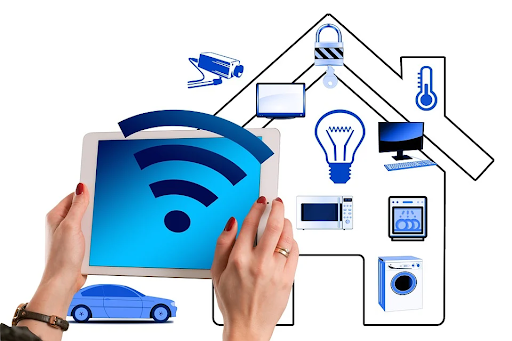Having an alarm system in your home could protect your valuables from burglars. Your alarm system can also alert you in case of a fire, floods, gas leaks, or carbon monoxide in your home. Understanding how the alarm system works could help you act accordingly during an emergency.
According to a survey conducted in 2017, 50% of detained burglars confessed that they wouldn’t break into a house with a working alarm system. In addition, another 23% said that any evidence of sensors or an alarm system would make them avoid the house completely.
Let’s look at what alarm monitoring is and why it’s important for homeowners to know how it works.
What is Alarm Monitoring?
Alarm monitoring is the sound/alert your alarm system makes to alert people at a central monitoring station. The people that receive the alert are on duty 24/7 and are ready to process this alert and respond to it immediately. They can either call the homeowner to confirm it’s not just an error or the police in case of an actual emergency.
Alarm monitoring will typically differ based on the alarm company you are using. Their protocols may be different but one common aspect is that there is always someone to respond in case of an emergency.
How Does Alarm Monitoring Work?
The security company will install a network of sensors controlled by a central control panel as part of the alarm system. An alarm system is an electric circuit that has a low voltage electrical current flowing through the sensor.
In the case of an intruder, opening a door or window will interrupt this flow of electricity. When the flow stops, a warning signal such as a strobe light, siren, or notification is sent to warn you or the security company.
The sensors will depend on what you specify with the security company. For example, you might get:
- Telephone line tampering sensors,
- Perimeter sensors
- Interior motion sensors
- Carbon monoxide detectors
- Flood detectors
- Windows and door sensors
- Temperature detectors etc.
When any of the sensors is triggered for any reason whatsoever, it sends a signal to the security company’s monitoring station. This will happen if you have a professionally monitored alarm system. If you have a self-monitoring system, an app on your phone controlling your security system will receive a signal alert.
You can either receive a call to confirm if there is indeed an emergency but, in some cases, they will contact the authorities immediately without any communication with the homeowner. This will automatically happen if you don’t answer the monitor’s call. The monitor will call the relevant authorities i.e., a fire alarm will warrant a call to the fire department, a motion sensor alarm will warrant a call to the police, and so on.
Types of Alarm Monitoring

1. Professionally Monitored Systems
Professionally monitored systems can come in handy if you:
- Live in a break-in prone area
- Are away from your home most of the day
- Keep valuables in the house
- Are unconcious
- Are in the house and are afraid to confront the intruder
- Have left your pets or kids home alone
- Are unreachable
It costs roughly between $15-$30 a month to have a professional monitoring system installed at home. Compared to the peace of mind you are getting, it’s safe to say that that’s a steal.
2. Self-Monitored Alarm Systems
A self-monitored alarm system involves your alarm system sending alerts directly to an application on your phone. Here, there is no 3rd party involved compared to professional monitoring. When the sound from your alarm lets you know the problem, it’s up to you to take action.
Compared to the professionally monitored system, it’s less safe as intruders can easily disarm the window or door sensors. They might scare intruders but beyond that, they offer no extra protection. Although a self-monitored alarm system is cheaper than a professionally monitored one, you can’t guarantee that your house is 100% secure.
Putting It All Together
Professionals highly recommend going for a fully monitored system because it can make a big difference in case of an emergency. Since there is someone ready to act immediately when there is a problem, you can be assured of safety. If you aren’t home at all times, you might be at ease knowing that someone will notify you in case of anything.
